Are you looking for a power solution that is both reliable and affordable? A used diesel generator can be a very good investment, especially if you need backup power for your business, home, or an off-grid project. However, the second-hand generator market can be very confusing and overwhelming if you do not have the right information. This guide is your helping hand! We will take you through the entire process starting from the advantages of diesel generators and going all the way to key factors to consider when it comes to assessing a used unit. At the end of this post, you will have the necessary information to make a sound choice and also to identify the ideal generator that matches your requirements. So, let’s begin!
Understanding Diesel Generators
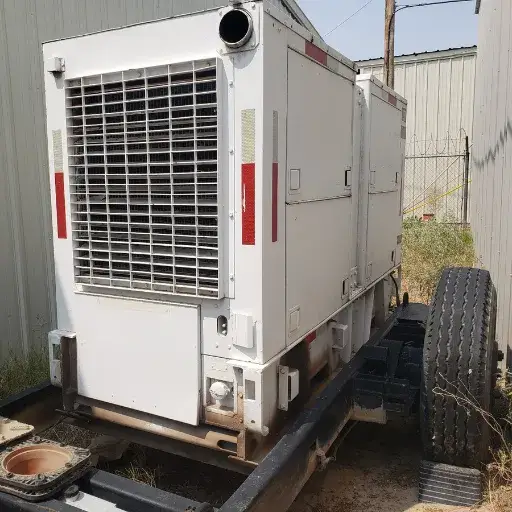
Diesel generators are power-producing machines that convert the energy of a diesel engine to alternator power to produce electricity. They are mostly employed as a trustworthy backup power source during outages in industries, commercial establishments, and households. The strong points of diesel generators are their longevity, less fuel consumption, and the capability to operate for a long time. Their maintenance is required less frequently than that of other generator types, thus they are economical in the long run. Diesel generators provide a wide range of options in terms of size and capacity to fulfill different power requirements, from the tiniest portable units to the largest industrial installations.
What is a Diesel Generator?
A diesel generator, as the name implies, is a device that uses diesel as its source of energy and converts that energy into electricity, depending on the combination of the diesel engine and an alternator. First, the diesel engine burns fuel to produce mechanical energy, then this mechanical energy drives the alternator, which in turn generates electricity. Diesel generators are commonly employed for the purpose of providing standby power during interruptions and even as a primary power source in places that are not connected to the grid, like construction sites, remote areas or emergencies. These generators are praised for their sturdy designs, low fuel consumption, and capacity to handle substantial loads, which together make them a reliable choice for many applications. In addition, modern diesel generators have equipped themselves with the latest technologies for the purposes of improving performance, cutting down on emissions, and securing safety, thus conforming to the stringent environmental regulations.
How Diesel Generators Work
The operating principle of a diesel generator comprises the conversion of mechanical energy to electrical energy via a diesel motor and an alternator. The sequence commences with the diesel engine carrying out fuel combustion internally. The air in the engine’s cylinders is compressed, which raises the temperature very high. The moment when diesel fuel is injected is the crucial point; it ignites because of the high temperature from compression, and this results in an explosion that pushes the pistons of the engine.
The oscillating electric current (AC) produced by the diesel engine’s mechanical energy produces electricity through electromagnetic induction. The alternator, consisting of a rotor and a stator, rotates the engine’s pistons, and the magnetic field induces a flow of electricity in the stator windings. The electricity produced, then, undergoes regulation by the generator’s control system to guarantee the output’s stability and usability.
Contemporary diesel generators have been fitted with premium-quality automatic voltage regulators, more efficient emission-reducing exhaust systems, and user-friendly digital control panels that indicate the consumption of fuel, voltage, and frequency, among other parameters. The efficiency of diesel generators is said to be between 30%-50% depending on the manufacturer, and in some cases, with refinements in engineering, they can even reach higher efficiencies than that. Moreover, they can last longer than others and require less maintenance; all these things are significant advantages.
In the following years, according to the latest market analysis, the global generator market would still give diesel generators a share of about 40% owing to their reliability of operation in industrial locations as well as their capability of being a part of emergency and backup power systems. Moreover, the ongoing innovations in hybrid systems are evidently helping diesel generators to become a more renewable-friendly source; thus, their flexibility and adaptability to future energy solutions are considerably increased.
Applications of Diesel Generators
- Emergency Power Supply:
Situation is such that diesel generators have become the most common source of power supply in hospitals, data centers, and other places where power failure is not allowed. - Construction Sites:
They are the first choice for a power source in remote or undeveloped areas for all the construction activities including tools, equipment, and lighting. - Agricultural Operations:
When electricity is not reliable, farmers go for diesel generators to run irrigation, machines, and even cooling facilities for grains. - Industrial Facilities:
Generators are unavoidable when it comes to providing electricity to massive machinery, keeping production going even during electric supply interruptions, and meeting the demands for uninterrupted production. - Remote Locations:
Among all potential uses of diesel generators, one that comes first is the supply of power to isolated areas such as mining locations, offshore oil rigs, and small communities.
Benefits of Used Diesel Generators
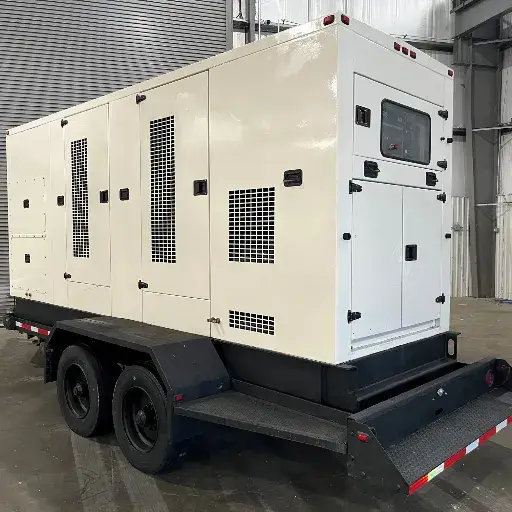
| Benefit | Description |
|---|---|
| Cost-Effective | The price of used diesel generators is drastically lower than that of new models, thus providing a cost-effective alternative for both the business and consumer sectors. |
| Reliability | The trait of longevity and strong performance that the diesel generators have makes the second-hand ones still a good source of power. |
| Availability | Sellers of the used generators may have them in stock, which means customers will not have to wait as long as they would if they decided to buy new equipment. |
| Eco-Friendly Option | Reusing a generator is a way to decrease the environmental issues of waste and the pollution caused by the manufacture of new machines. |
| Proven Performance | The majority of the used diesel generators come with proof of successful operations, which means that they are of the required performance level. |
Cost-Effective Solutions for Power Needs
When doing the math for power needs, using diesel generators comes out as a practical option, and economically. They present huge savings compared to purchasing new generators, yet still yield good performance. Besides that, the remarkable state-of-the-art technology in generators has greatly minimized fuel consumption, making it possible to run the generators at low cost for a long time. Regular maintenance and inspections can even add to the years of service of these generators, making investing in them an economically wise choice for both companies and individuals. By going for a used generator, you not only meet your energy needs but also make a wise financial decision that fits well with eco-friendly practices.
Environmental Considerations
When evaluating the environmental aspects of generators, emissions and fuel efficiency, among others, should be considered. Besides, diesel and gasoline generators usually emit greenhouse gases and other pollutants, thus making air quality issues serious and raising climate change concerns. Moreover, using cleaner options such as generators that run on natural gas or renewable energy can make a big difference when it comes to reducing emissions. Furthermore, technology has developed to a point where there are fuel-efficient models that not only waste less but also have a smaller environmental footprint generally. The ecological impact of generators can also be reduced through proper maintenance and operation.
Reliability and Maintenance of Used Generators
The used generators are usually considered as a trustworthy source of backup power supply; however, their reliability mainly relies on the necessary care and the previous use of the generator. Constant inspection is of great importance in the first place since it will allow identifying any parts that are either worn or in need of replacement. Besides that, this process also involves the checking of fuel and oil levels, the battery condition as well as the cooling system functioning. The alternating service, such as filter replacements and load testing, will not only keep the generator going but also maintain the quality and efficiency during its operation.
Moreover, it is always advisable to check whether the generator has been bought from a recognized dealer that has kept records of its previous history and service, as this might help in reducing the risks. Following a detailed maintenance schedule, along with the use of top-quality parts, are the most important measures to be taken to prolong the life of a second-hand generator and also to maintain its trustworthiness in very critical operations.
Features to Consider When Buying a Used Diesel Generator
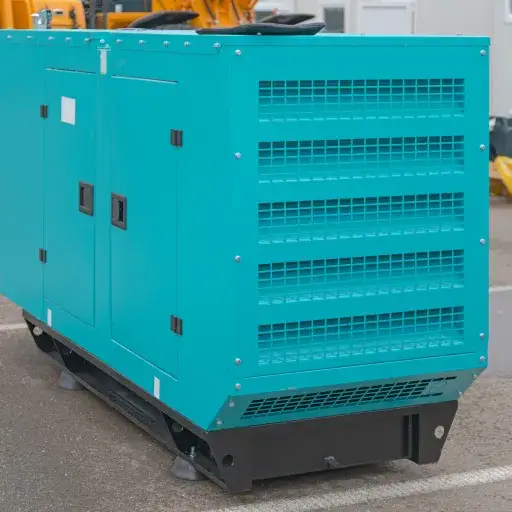
In the process of acquiring a pre-owned diesel generator, the essential aspects to consider are the generator’s age, its usage hours, and its maintenance record. Carry out a physical condition assessment to identify if there are any signs of wear or damage, and make sure that the engine and alternator are functioning correctly. Confirm that the load capacity corresponds to your energy needs and inquire about any warranties or guarantees that come with it. The last step is to determine the fuel consumption of the generator and make sure it meets the emissions standards.
What to Look for in a Used Generator
- Age and Usage Hours
To measure its remaining lifespan and the overall state of the generator, first ascertain its age and the total number of hours it has been running. - Maintenance History
Look into the records of service and maintenance to determine how regularly the generator has been serviced and how well it has been taken care of. - Physical Condition
Look for signs of wear, rust, or damage that could potentially imply hidden problems or that the generator is being poorly maintained. - Load Capacity
Make sure that the energy requirement for the intended use is equal to the generator’s power output. - Fuel Efficiency and Compliance
Evaluate the generator’s fuel consumption rate and check whether it complies with current emissions and environmental standards.
Generator Set Specifications
While selecting generator set specifications, it is essential to check the following main things:
- Power Output – The generator’s power rating in kilowatts (kW) should be such that the generator does not get overloaded, and at the same time, your energy demands are met comfortably.
- Engine Type – Find out if the generator runs on gasoline, diesel, natural gas, or propane, since this will affect fuel availability and costs of operation.
- Runtime – Find out how long the generator will last at maximum or minimum load and see if this matches your requirements.
- Portability and Size – Think about the size and weight of the generator, especially if you need it to be moved for your application.
- Noise Level – Make sure the generator is not too loud for the place by looking at the decibel (dB) rating provided by the manufacturer.
- Safety Features – Check for features like overload protection, low-oil shutdown, and other safety measures.
Do not forget to compare these specifications with your necessities to make the right choice of generator set.
Power Output and Voltage Options (480V)
The evaluation of power output and voltage options is one of the most important factors to consider when buying a used diesel generator, especially if you need 480V for your application. Compare kilowatt (kW) ratings with the equipment that the generator will support to make sure the rated power of the generator satisfies your operational requirements. In case the generator is for commercial or industrial usage, give priority to the generators that are suitable for maintaining stable voltage outputs during the loads, because constant 480V is very important for the operation of heavy machines or large electrical systems. Also, check if the generator allows flexible voltage configurations like multi-voltage settings to increase the range of applications. Assess the condition of the parts, for instance, alternators and regulators, to ensure they can provide power reliably without requiring maintenance too often. Engaging professional testing and certification to ensure that the unit fits your specific voltage requirements is recommended at all times.
Critical Considerations When Buying a Used Generator
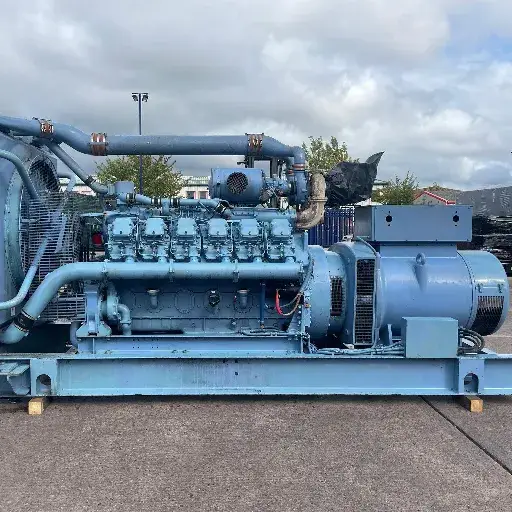
A trustworthy maintenance history should be the starting point when considering a used generator and a thorough inspection for any signs of wear or damage should follow. It is a good idea to test the generator under load because this will tell you if it can provide you with the desired output and if it is good performance-wise. Check the operating hours as well since the high usage might be a sign of potential problems. Make it a point to find out if the generator comes with all necessary papers, such as service records and manuals. Always take a unit from a recognized seller and consider getting a professional opinion to eliminate unexpected issues.
Assessing the Condition of Used Diesel Generators
- 1
Visual Inspection:
Inspect for rust, leaks, or cracks on the exterior that are easily visible. Focus on the engine, fuel tank, and their connections. - 2
Review Maintenance Records:
Verify the generator’s servicing history and check for proper care, any recurring issues, or significant repairs. - 3
Operating Hours:
Determine the total operational hours. Usually, lower hours mean less wear; however, usage patterns are also a factor. - 4
Test Under Load:
Operate the generator with a realistic load to confirm it is working quietly without any irregular noises, vibrations, or performance troubles. - 5
Check Age and Manufacturer:
Take into account the unit’s age and whether parts are still available. Choose brands with good support and reliability. - 6
Professional Inspection:
If possible, have the generator checked by a certified technician for mechanical and electrical integrity before buying it.
Taking these steps will assure you that the generator is in good working condition and will be a reliable partner for your needs.
Cost-Effective Strategies for Purchasing
- Analyze Your Power Requirements:
Before searching for a second-hand generator, it is essential to define the exact power needs of your equipment. When you purchase a generator that has a wattage that is ideally suited to your requirements, you will not need to go through the extra expense of getting a more powerful generator. - Investigate the Market Prices:
Compare similar models in price through the use of online marketplaces, local directories, and the websites of dealers. A good grasp of the market average enables you to play a stronger role in negotiations as well as to spot sellers who charge too much. - Make Your Purchase in Off-Peak Times:
The sale of generators usually goes up during a particular period, like the rainy season, which causes storms. If you buy during a non-peak time, you might get a better deal and even a discount. - Look at Refurbished Generators:
In certain instances, the sellers have refurbished generators that have been professionally restored and are sold with a warranty, thus giving the consumer a middle ground between quality and price. - Use Auctions and Liquidation Sales:
Watch out for auction sales, estate sales, and business liquidations, which are the places where used generators are often sold at very low prices. - Do a Comprehensive Inspection of the Generator:
It is worth the money to check that the unit is in good working condition. Engine inspection, wiring, and signs of wear or damage should all be done before finalizing the purchase. - Talk Prices with the Vendors:
Do not be shy to ask for a lower price from a private seller or a dealer, especially if you have done your homework and can support your claim with market data.
💡 Pro Tip: Implementing these tactics will allow you to get the most value out of the purchase while still spending the least amount of money, thus making a good investment in a used generator.
Understanding the Buying Format: Auction, Direct Sale, or Broker
It is critical to understand the buying format first so you can make an informed choice when buying a second-hand generator. There are basically three main ways to buy it—auction, direct sale, or broker. Each has its pros and cons:
Auction
Buying through an auction can offer you the best price if you are patient enough to wait for the right moment. But on the other hand, “as-is” is the common term used for auctioned items. Therefore, it is of utmost importance to do your research very well before making any bids, and if possible, even inspect the generator before you start bidding. It is also worth noting that auctioned items can sometimes come with extra charges, and they may also require quick decision-making which makes them suitable for only experienced buyers.
Direct Sale
The owner of the generator, either a private seller or a company, is the person from whom you buy directly. The seller in direct sales might give you a chance for negotiation on the price and you might also get to learn a lot about the generator’s history from him/her. More personal communication is usually the case with this method; however, it is also essential to carry out your own independent check with respect to the generator’s condition and ownership documents.
Broker
A broker is the one who facilitates the communication between the buyer and the seller and is of great help in locating and evaluating the generators that would be perfect for you. The brokers may be very costly in terms of payment or commission, but with them you can save a lot of time, as they will bring you a larger inventory, and thus you will have a wider selection. The brokers will be invaluable if you are very particular about the model you want or if you need professional assistance throughout the buying process.
Only by knowing how to deal with each of the formats can you rightly select the one that suits your requirements, financial plan, and ease, hence, the entire buying process will be smooth and pleasant.
Ironclad Assurance and Support for Buyers
Ironclad assurance and support for buyers means that the sellers are focusing on giving them reliability and peace of mind during the whole purchase process. This may contain the following guarantees: warranties, return policies, and even shipment of products to ensure quality and authenticity. In this context, robust customer support services are also essential; they give trust and satisfaction to customers by providing help, answering questions, and resolving issues.
Ensuring Quality and Reliability
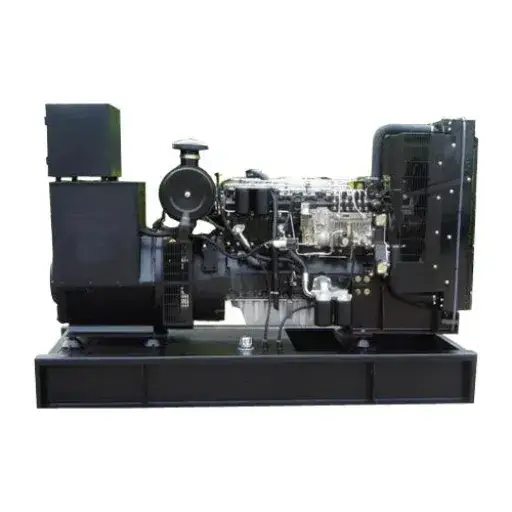
The quality and reliability of a used diesel generator are the most important factors to consider during the purchase process. To start with, buyers can ask for a comprehensive service history that would not only confirm regular maintenance work but also reveal the extent of past repairs. It is advisable to perform a complete assessment or engage a qualified technician to examine the condition of the generator, using criteria such as wear, performance levels, and overall functioning. Moreover, it is essential to verify the number of hours the generator has been running as lower usage usually means less wear and tear. Good sellers often give out a warranty or offer return alternatives which would reassure the buyer that they made the right choice. Go for reputable suppliers that have a clear policy and good customer reviews, ensuring a trustworthy purchase.
Warranty Options for Used Generators
The warranty options for used generators depend on the seller. A few trustworthy dealers give short-term covered warranties, which generally consist of such parts asthe engine, alternator, and others for the stipulated time. The importance of such warranties is that they offer a sort of protection against faults or failures that were not expected. Always ask about the warranty in detail, like what parts are included, where the repairs are done, what conditions need to be met, and if there are any limitations. Some sellers also provide extended warranty plans for extra assurance. Keep all warranty papers and make sure to get acquainted with the claims procedure so that you can have future issues handled with ease.
Post-Purchase Support and Maintenance
Proper post-purchase support and maintenance for a used diesel generator are necessary to ensure its reliable and long-lasting performance. Most sellers offer such support services as routine maintenance, replacement parts, and access to technicians for troubleshooting. Ask the seller what kind of maintenance plan or service agreement he offers before making the final decision on your purchase. This can be a simple way to manage the generator’s upkeep and financial burden over the long run.
Furthermore, reliable performance of the generator is dependent on regular maintenance activities like oil checking and changing, fuel system inspection, and air filter cleaning or changing. It is highly recommended to use consumables of the best quality and to adhere to the manufacturer’s service timetable. Moreover, it is advisable to keep a precise log of all the maintenance works done for future reference as it could prove helpful in warranty claims and also in resale value maintenance.
In case of any technical queries, be sure to get the seller’s contact details for their support team or a list of trustworthy service providers. The availability of original spare parts along with prompt response times can really matter a lot when dealing with unplanned problems. Thus through diligent maintenance and making the most of the available support after buying, you can ensure that the performance and life of the used diesel generator will be maximized.
Reference Sources
- Tips on Buying a Used Generator – Generator Source – Offers essential tips on evaluating age, hours, maintenance history, and load testing.
- Used Generator Buying Guide 2024 – PowerGen Enterprises – A detailed guide covering key factors like maintenance history, visual inspection, and operational tests.
- Buying a Diesel Generator: Everything You Need to Know – Surplus Record – Discusses reliability, capacity, and other considerations for both new and used diesel generators.
- The Benefits and Risks of Buying Used Diesel Generators – Aaron Equipment – Highlights the cost benefits and potential risks of purchasing used diesel generators.
- Where to Look for Used Diesel Generators – Reddit – Community insights on finding deals, including auctions and direct purchases.
Frequently Asked Questions (FAQs)
What factors do I have to take into account when buying a second-hand diesel generator?
It is essential to judge a used diesel generator’s quality when purchasing one, along with its maintenance past and total operating hours. Take a good look at the generator for any signs of wear and tear or damage and talk to the seller about how it was previously used. Get your reliable power sources that will not only fit your individual needs but also be well within your financial capabilities. Also, think about the size of the generator and the type of fuel required, as these factors will affect the generator’s ability to perform in different applications.
What are the pros and cons of buying used generator sets?
Buying a used generator set has a lot of pros, with the main one being the cost, which is drastically lower compared to a new unit. Used generators are often considered the better option for the environment since they mostly have tier 2 emissions ratings. Besides, many of the second-hand units are reconditioned and come through inspections which ensures and adds to the reliability of the power source during emergencies and minimizes the outage time.
What steps can I take to guarantee a positive experience when choosing a used diesel generator?
You should rely on sellers who provide you with a guarantee of the generator’s quality to ensure that you have a good experience. Ask for comprehensive data on the generator’s upkeep, repairs, and upgrades in service history. Consider purchasing from well-known retailers who provide a warranty or guarantee, thereby assuring you a dependable power source that meets your standards.
In which areas are diesel generators commonly used?
The applications of used diesel generators include construction sites, hospitals, and wastewater treatment plants, among others. They keep the lights on in case of a power outage and can also work as primary power sources in off-the-grid locations. Small diesel generators, in particular, are much in demand for their flexibility as they can be easily moved from one site to another.
How can I calculate the suitable generator size to cover my needs?
Finding out the perfect generator size is based on power consumption of the equipment that you plan to use the generator for. Figure out the total kilowatt (kW) requirement for your appliances and machines, and then add the starting surges if any. A 100 kW or 250 kW generator might fit the bill for major applications, whereas a portable generator or a 50 kW unit can serve more minor requirements.
Are used generators for sale a dependable power supply?
Absolutely, used generators for sale can be a dependable power source, particularly when they are acquired from proper dealers. A lot of the second-hand diesel generators have power to withstand the long-term if they have been regularly appropriately serviced. Besides, it is of utmost importance to perform detailed investigations and to get information on its background to see if it can deliver on reliability and efficiency.
Is it possible to come across cheap surplus diesel generators?
Indeed, one of the ways to get cheap surplus diesel generators is through online auctions, equipment liquidation sales, and specialized marketplaces. The surplus generators are usually sold at a price significantly lower than that of new ones, thus being an excellent opportunity for the buyers to get their hands on the power solutions they want without breaking the bank. Always check the condition and functionality first before you buy to ensure that you are getting a reliable product.
Ready to Make Your Purchase?
Armed with this comprehensive guide, you’re now equipped with the knowledge to make an informed decision when purchasing a used diesel generator. Remember to prioritize quality, perform thorough inspections, and choose reputable sellers for the best results.
